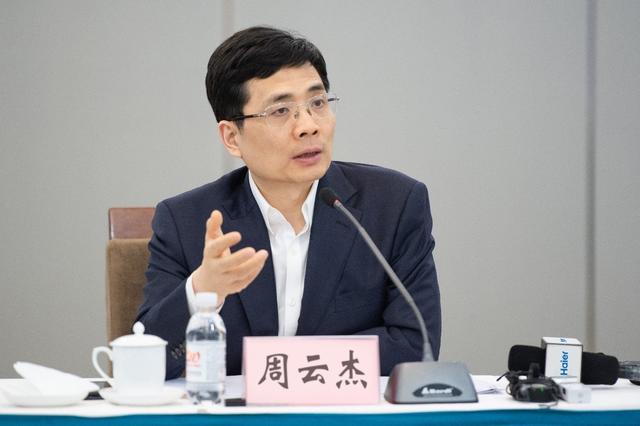NPC deputy: China's industrial internet to have competitive edge
 0 Comment(s)
0 Comment(s) Print
Print E-mail China.org.cn, March 9, 2021
E-mail China.org.cn, March 9, 2021

Zhou Yunjie, a deputy to the 13th National People's Congress (NPC) and president of Haier Group, said China's industrial internet will have an edge over the competition in the next three to five years in an interview about his proposals to the Two Sessions.
Promising future of China's industrial internet
As an NPC deputy, Zhou has been advising China's industrial internet development for the past five years. When asked about challenges and difficulties facing China's industrial internet, Zhou said that although the country started early and from a high position, the development since has been uneven between enterprises of different sizes.
He said China should build a national industrial internet platform that is open sourced to encourage developers to share source code and use open source systems, which can speed up the digitalization of enterprises. Common standards should be set for platforms, networks, and security protocols, so that data can be communicated and shared between different platforms. More personalized and integrated services should be provided for enterprises, and encourage the industrial internet to promote the development of the small- and medium-sized companies. China's international enterprises can localize its services overseas.
Zhou said he is confident about the future of China's industrial internet. He said China's internet consumption has been taking the lead in the world, and the country should seize the opportunity of industrial internet development. He praised the Ministry of Industry and Information Technology's action plan released in January to boost innovation in industrial internet for the next three years, saying it well suits the realities of China's industrial internet.
Elder-friendly smart home
Zhou also commented on elder-friendly smart homes in the interview. He said digitalization and smart technologies have made life convenient and efficient, but the tools still have not served a significant portion of the population, especially the elderly. At the end of 2019, more than 250 million people in China were over the age of 60, accounting for about 18% of its total population. Zhou said many of them could not use smart phones, health codes, car-hailing apps, or the smart devices in hospitals, and thus were unable to take advantage of convenient transportation and medical services.
Zhou spoke on removing impediments for the elderly to use smart equipment and integrating them into the age of digitalization. He said that enterprises should come up with elder-friendly products to increase their happiness. Taking smart home for example, smart household appliances should be designed for the elderly to use by speech control, which is easy and interesting for them to try, he said.
Zhou said that standards of smart home applications for the elderly should be set to approve more products and services benefiting the aging population. He said favorable policies such as financial support and tax reduction should also be provided, and pilot projects can be practiced in some cities.






Go to Forum >>0 Comment(s)